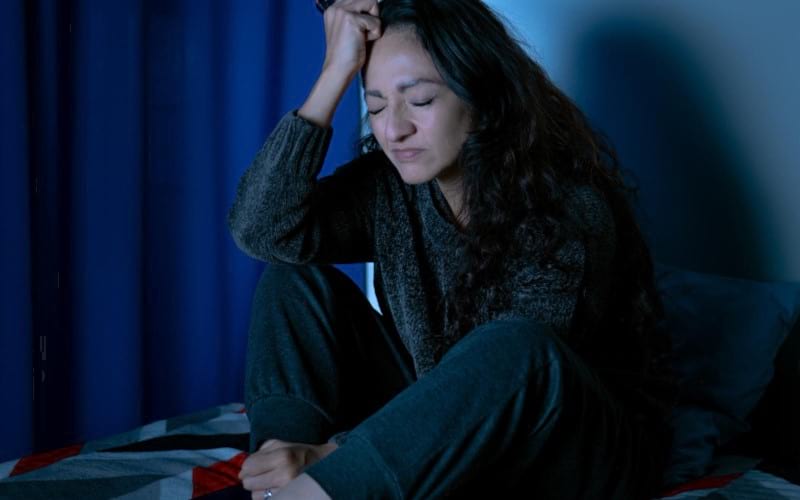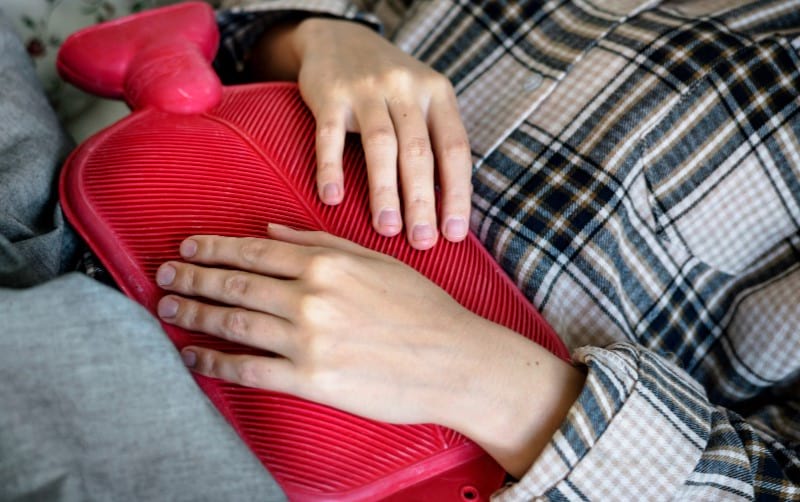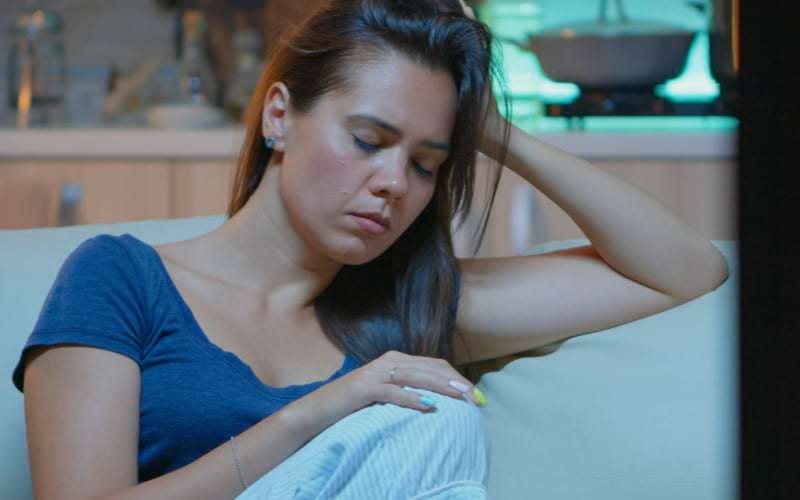Itching and tingling pain could worsen when you’re about to sleep at night if you have genital herpes. Well, it’s because your body is free from distractions and very aware of all your bodily sensations. There isn’t any cure for it, but you can follow some at-home care tips or take medicines to reduce the length of outbreaks and prevent symptoms from getting worse. Managing stress, knowing your triggers, and recognizing early signs are ways to avoid a severe outbreak.
Genital herpes is prevalent, and The World Health Organization stated that in 2016, about 3.7 billion people under the age of 50 had contracted HSV-1, and around 491 million people ages 15 to 49 years had an HSV-2 infection.
Because of the stigma it carries, many people don’t talk about it with their partners or get medical help. It increases the risk of transmission, which could cause many problems down the road.
You should always reach out to a medical professional and get help.
After all, you must take care of your health first and prevent possible herpes complications.
How do you get herpes?
Genital herpes is a common sexually-transmitted infection (STI). It can be spread through sex (vaginal, anal, and oral) or close sexual contact.
Two viruses cause genital herpes:
- Herpes simplex virus type 1 (HSV-1) often causes oral sores or fever blisters. Most young children get it from saliva during non-sexual contact, like receiving kisses from an infected adult. But, it can also result in genital sores when it’s spread through oral sex.
- Herpes simplex virus type 2 (HSV-2) forms sores on your genitals, anus, buttocks, and inner thighs. It spreads through sexual contact.
Herpes simplex virus (HSV) is found in:
- Saliva
- Semen
- Vaginal discharge
These viruses can enter your body on an open wound (skin abrasions) or the thin layers of tissue found in your body’s openings (mucous membranes), such as in your nose, mouth, and genitals.
HSV-1 can spread through:
- Kissing
- Touching the skin near the mouth of an infected person
- Sharing personal items such as lip balm or razors and food utensils
- Receiving oral sex from someone with cold sores (oral herpes)
HSV-2 can spread through:
- Having sex (vaginal or anal) with someone who has genital herpes
- Receiving or giving oral sex from an infected person
- Touching herpes sore and then touching your genitals
- You have skin contact, or your genitals touch the skin of the genital area of someone with herpes
Remember that even if someone with an infection has no visible sores or blisters, you can still get the virus from them.
The virus can stay in the body and not give you or your partner any symptoms.
What are the symptoms of herpes infection?
Some people may only experience mild to no symptoms when a simplex virus infection occurs.
Others may not even know they are infected with the virus.
However, symptoms may occur within 2 to 12 days after exposure to the virus.

The following are common symptoms of a herpes virus infection:
- Pain or itching inside your vagina, head of the penis, or on your rectal area
- Pain when peeing or being unable to pee
- Itching or tingling pain on the site that came in contact with the virus, which later on forms blisters
- Blisters may form into painful ulcers when they rupture, ooze fluid or bleed
- Scabs or a crust form as ulcers heal within one or two weeks of the outbreak
- Smelly vaginal or urethral discharge
- Bleeding between your period
When you notice one or more blisters appearing on your genitals, rectum, or mouth, you’re likely experiencing an “outbreak.”
You may have flu-like symptoms when you’re experiencing your first herpes outbreak.
These symptoms include the following:
- Fever and chills
- Headache
- Body aches
- Swollen lymph nodes (in the groin, arms, or throat)
Herpes is a life-long infection and, currently, has no cure.
If you experience an initial outbreak, you will likely have repeated (or recurrent) outbreaks. But, it would be shorter and less severe than your first.
How often it occurs varies widely from person to person. You’ll have the most outbreaks during the first year after the infection starts.
For someone with HSV-2, they’ll have an average of 4-5 outbreaks per year. According to American Sexual Health Association (ASHA), a person with HSV-1 will likely experience one herpes outbreak yearly.
However, outbreaks will decrease over time.
Remember that it’s easy to confuse what herpes sore looks like with a pimple or an ingrown hair.
Talk with your sexual partner or a healthcare professional if you suspect that you have contracted a herpes infection.
The earlier you receive treatment for the infection, the lesser you’ll experience any severe outbreaks.
Why are genital herpes symptoms worse at night?
Genital herpes may cause you to itch more and feel tingling pain, especially at night or when trying to sleep.
Why? It’s because you’re very aware of all your bodily sensations when you’re about to sleep.
Simply put, you only have a few distractions during the night than in the morning.
So, when you’re on herpes “outbreak,” you’ll feel like your symptoms are getting worse every night.
How can you calm down herpes outbreaks at night?
Because there’s still no cure for herpes, you can only make some lifestyle changes and home remedies with medications to help reduce the severity of your outbreak symptoms.
Below are ways to calm down your herpes outbreaks:
1. Wear loose underwear
Wearing loose clothing or sleepwear and underwear will feel comfortable and allow your sores to be exposed to air which can help promote healing.
Don’t cover your sores with a bandage, even though this is very tempting.
2. Use ice on sores
Ice or cold compress to relieve itching or burning pain on sores rather than picking them will help them heal much faster.
Please stop yourself from touching or picking on your sores.
3. Apply heat compress
Heat compress can help reduce pain and swelling in the affected area.
Applying heat may also stop blisters from forming further during the onset of an oral herpes outbreak.

4. Ask your doctor for antiviral medications
Typically, your doctor will recommend treatment options depending on your case.
When you’re experiencing your initial outbreak, your doctor will give you a brief 7- to 10-day antiviral therapy. Though, this can extend until your symptoms improve.
After your initial treatment, your doctor might recommend intermittent or suppressive therapy.
- Intermittent therapy: It’s when you keep medications ready on hand in case of any flare-ups. If your doctor doesn’t give prescriptions for preemptive purposes, you can contact a 24/7 telemedicine.
- Suppressive therapy: It’s when you have to take antiviral medications daily. This kind of therapy is for people who frequently experience outbreaks.
The following are medicines for herpes:
- Acyclovir (Zovirax) is available in an oral or topical form which can relieve painful outbreaks and help heal genital sores faster. It can prevent recurrent outbreaks through suppressive therapy.
- Famciclovir (Famvir) is prescribed for people with strong immune systems, and doctors would not really recommend it as an initial treatment.
- Valacyclovir (Valtrex) treats symptoms and prevents outbreaks of oral or genital herpes, which can lower the risk of transmission to your partner.
- Docosanol (Abreva) is an over-the-counter topical medication to help treat recurring herpes flare-ups in your lips or the skin around your mouth (recurrent herpes simplex labialis).
- Denavir (Penciclovir) is a topical cream for treating recurrent oral herpes or cold sores.
5. Apply baking soda or cornstarch paste
Using a wet cotton ball or Q-tip, dip it into a small amount of pure baking soda and gently dab it on it, and it will dry out lesions and relieves itching.
You can apply this at night before you go to bed or whenever your sores become really itchy.
You can also use cornstarch instead of pure baking soda.
6. Apply garlic mixture
Mix olive oil with a freshly crushed clove of garlic, and then apply this mixture to your sores up to three times a day.
A clinical study suggests garlic may contain antiviral properties against HSV-1 and HSV-2.
7. Apply apple cider vinegar
Mix one part of ACV with three parts of water and then apply it to your sores.
ACV is well-known for its anti-inflammatory and antiviral properties.
8. Eat a variety of healthy food
Add foods to your diet that can optimize and boost your immune system against herpes infection.
Eat foods that are rich in:
- Antioxidants
- Omega-3 fatty acids
- Protein
- Vitamin C
- Zinc
- Vitamin B complex
On the other hand, you should avoid the following foods that are:
- Acidic
- Contain L-arginine
- Processed or preservative-heavy foods
9. Take lysine and probiotics
Taking supplements like lysine and probiotics may help support your immune system and prevent flare-ups.
- Lysine is an amino acid that aids in healthy digestion and cell growth. It can also potentially prevent herpes simplex outbreaks.
- Probiotics can help strengthen your immune function and response. You can start by adding yogurt to your daily meals.
10. Apply topical herbs and essential oils
Some topicals promote healing and relieve itching and discomfort. You can apply topicals before you sleep.
Because some essential oils can burn or irritate your skin, they must be diluted using carrier oils like jojoba and coconut oil.
The following are topicals that need carrier oils:
- Essential oils (tea tree, chamomile, ginger, thyme, lavender, Mexican oregano, eucalyptus)
- Witch hazel
- Lemon balm extract
- Neem extract
The following may not need a carrier oil:
- Aloe vera
- Manuka honey
- Licorice root extract
- Echinacea extract
- Goat milk
Before you use these treatments, consult first with your doctor as it may interact with other medications.
How can you prevent herpes outbreaks?
Below are some ways you can prevent outbreaks or reduce their length and severity:
1. Don’t stay under the sun
For someone with cold sores or HSV-1 infection, you must protect your skin from the sun using hypoallergenic, clear lip balm.
Avoid prolonged exposure to sunlight to reduce your chances of an outbreak.
2. Use a water-based lubricant
Using a water-based lubricant will prevent friction during sex which can avoid an outbreak.
Always use a condom when having sex.
Do not have sex during the onset of your outbreak, especially when sores are present. Chances are high that you will pass the infection to your partner.
3. Manage your stress
Stress can trigger an outbreak.
It’s best to do daily activities that can help you relax and minimize stressful situations.

Below are activities that can help you manage your stress:
- Take a yoga class
- Do deep breathing exercises throughout your day
- Practice mindfulness to learn to meditate
- Take relaxing bubble baths regularly
- Do a daily 30-minute moderate exercises
- Eat a healthy balanced diet and avoid junk foods
- Get at least 8 hours of uninterrupted sleep
- Reach out or talk to someone when things become overwhelming
4. Know your triggers
Your triggers might be different from other people. It’s best to write down or track when you have an outbreak from doing or eating something.
Some triggers can include lifestyle, sunlight exposure, stress, diet, and certain medications.
If you get the idea of which triggers you to have an outbreak, you can talk it out with your doctor or, as much as possible, avoid such situations.
5. Recognize early symptoms
When you recognize symptoms of an approaching outbreak, you can start treating it early to reduce its severity and length.
According to the Centers for Disease Control and Prevention (CDC), you may experience itching, tingling sensation, pain in your genitals, or shooting pain in your legs, hips, or buttocks when an outbreak is about to come.


